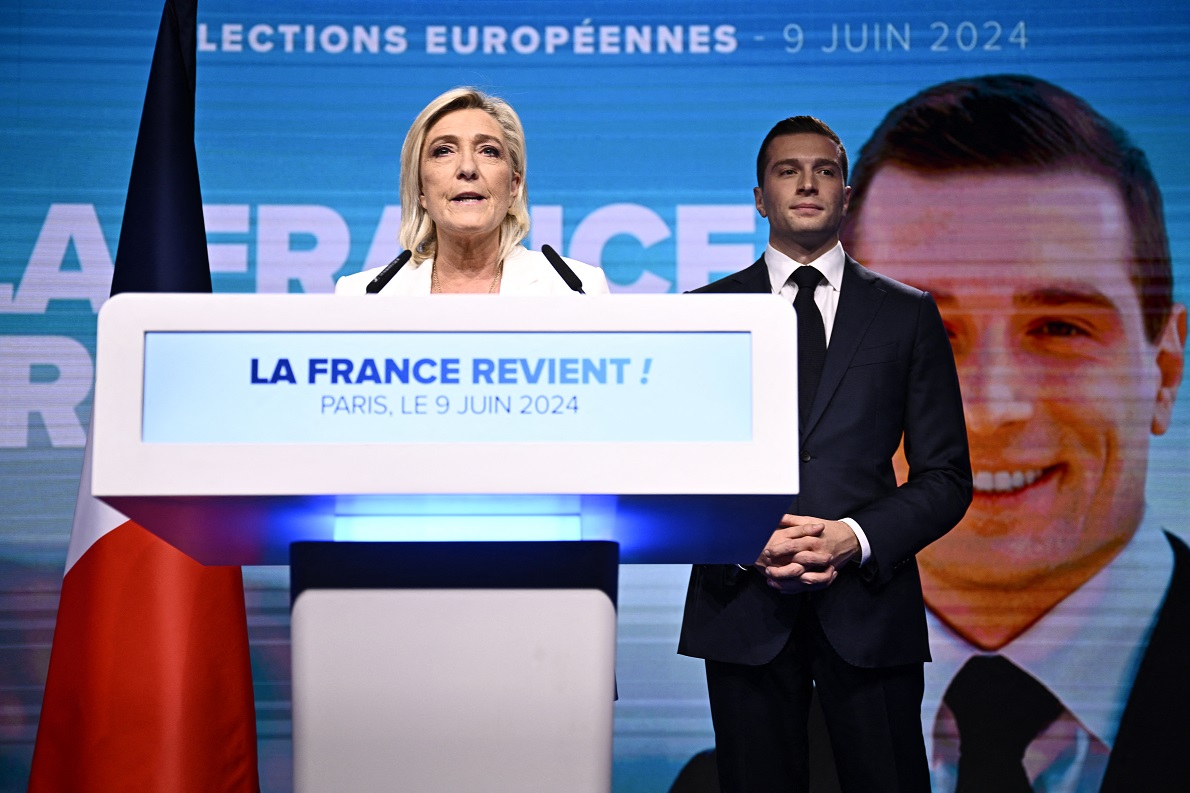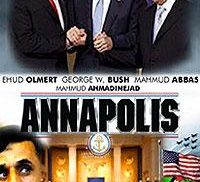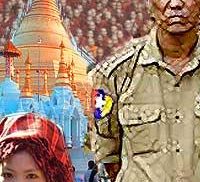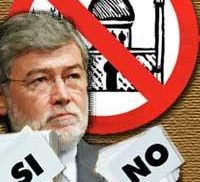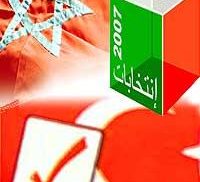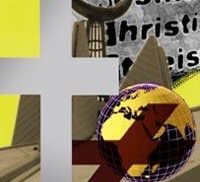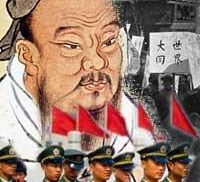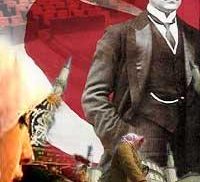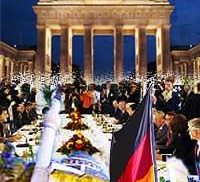Across Europe, far-right parties are gaining ground like never before since World War II, reshaping political landscapes and cultural narratives. From coalition governments to influential parliamentary blocs, their rise reflects deep-seated shifts in societal dynamics. What factors have fueled this surge? How have traditional parties and evolving cultural identities contributed to the far right’s growing appeal? What does it mean for Europe’s future? This dossier delves into the complex dynamics behind the far right’s ascent and the challenges it presents to European democracy.
Dossiers
- Even symbols have a certain importance. This is why the Annapolis handshake between Abbas and Olmert can bring hope with the new talks between Israelis and Palestinians. But an agreement is still far away and two very serious conundrums are weighing down on the future of the region. Hamas, locked away in the prison that is Gaza, still does not want to recognize Israel. Meanwhile, Iran feels more and more surrounded, following the Syrian and Saudi participation in the conference. The Annapolis summit, which was lived out with more enthusiasm in Washington than in the Middle East, will be the umpteenth false start, a film which has already been seen? Or, despite the general skepticism, will represent the beginning of a new road to peace?
- Fear of the other is engulfing European cities. The xenophobic right of Christoph Blocher wins in Switzerland, trouble is brewing in the suburbs of Amsterdam, and in Italy hatred of Roma and Romanians is spreading. And yet the number of mixed marriages continues to rise in France, in the UK, in Italy and in the US, amongst others, uniting partners of different religion, different colour, different ethnic group and different nationality. They are the sign of a hope, of a society which opens itself up the ‘other’. They are couples formed often of people who are prepared to make compromises, and their children are destined to be even more open to the world. Beyond all prejudice.
- They marched for days, braving the wrath of the regime. The Burmese demonstrators caught the attention of the world with their demands for democracy, freedom and dignity. Their weapons were mobile phones, and their leaders Buddhist monks who have reminded the world how religion can sometimes contain a unique energy. Now, however, those sacrifices and those deaths, demand that the lights do not go out on Burma. More than two months after the start of the protests, what has become of the “saffron revolution”? Much lies in the hands of China and India, the two main allies of the military junta. But the West, too, can still play its part.
- Berlin, London, Cologne, Marseille, and now Bologna and Genoa. All over Europe the building of new Mosques is giving rise to disputes and protests. According to some in Italy there are too many Mosques; according to others there are too few. The media is blowing on the fire, and the fear of differences is mixing with Islamophobic provocations and more rational arguments. How transparent is the running of our Mosques? The left is divided. In Bologna, the mayor Sergio Cofferati says that Mosques guarantee more security than an improvised garage. In the face of protests, however, he is opting for a local referendum. In America, according to the Economist, everything is easier. And in Australia, a deliberative poll has showed that…
- The expected spectacular victory of the Moroccan Islamic Party of Justice and Development did not happen. But in the parliamentary elections of September 7th , the PJD proved itself to be an authoritative and responsible protagonist in a Morocco which is increasingly open and modern, despite the low turnout at the ballot box. Opening up the system to Islamic parties is a decision that cannot now be reversed for a country which wishes to call itself democratic. The people therefore have the freedom to choose, and the Islamic parties in turn are encouraged to open up, to engage in dialogue with secularists, and to come face to face with reality. Just as has happened in Turkey with Tayyip Erdogan’s AKP. But can Ankara serve as a model for Rabat? After Turkey, might Morocco also have the right to a claim for EU membership?
- In 1976 Ernst-Wolfgang Böckenförde presented the following dilemma: “The liberal secular state lives on premises that it is not able to guarantee by itself. On one side it can subsist only if the freedom it consents to its citizens is regulated from within, inside the moral substance of individuals and of a homogeneous society. On the other side, it is not able to guarantee these forces of inner regulation by itself without renouncing to its liberalism.” What answers can the liberal state offer to questions of social cohesion and ethical deficit that are affecting secularized democracies? Are we living in a secular or a post-secular society? Reset put these questions to some of the most influential international intellectuals.
- The democratization of China will not necessarily involve the adoption of the Western model. On the contrary, it is by looking within itself, and going back to its Confucian roots, that the Asian giant could slowly open itself up to democracy. So says Daniel A. Bell in his latest book Beyond Liberal Democracy. The traditional values of Asia are founded upon communitarianism, social order, respect for elders and a paternalistic state – but is this definition still valid? As China opens itself up to the values of the West, the West seems to look down with a sense of superiority on Asian values. And yet Benjamin Franklin, almost 300 years ago…
- The media of the old continent have accentuated the political battle which has recently prevented the Islamic moderate Abdullah Gul from becoming president of the Republic: an event which has reignited the anti-Turkish and anti-Islamic polemic. “There is no risk whatsoever of theocracy”, assures the philosopher Seyla Benhabib, who says to be interested in the experiment of Gul and Erdogan’s party. Turkish politics is already ever more European, and the same laics, as sociologist Nilüfer Göle explains, have knocked down the wall of incomprehension which separated them from the clergymen. So, the only wall left is the one which Europe is putting up. The doors of the EU remain closed.
- Politics may continue to slam the door in their faces and to suppress all dissent, but, to the citizens of the Arab world, the emergence of new media today offers an extraordinary opportunity. Satellite TV, on-line journals, blogs and Youtube are giving a new voice to Arab ‘subjects’, who escape with increasing frequency the control of regimes. A part of the credit must be attributed to the pan-Arab satellite channel Al Jazeera, which has for years been challenging the ‘single thought’ of governments, and which is changing the very nature of journalism in the Arab world. The agendas of the media have been shaken, opening up unexpected spaces for all – for Islamic opposition, but also for secularists and reformists.
- The Second session of the German Conference on Islam concluded with a controversial balance. No concrete results, but an undoubted symbolic success. It’s some time now that Germany has quit considering immigrants as simple Gastarbeiter, guest workers. New Germans of Turkish origins are in the Bundestag or at the top of major political parties, and they often play the main characters in German movies and TV fictional stories. Surely some problems remain if one Turkish-German out of two still searches for his wife abroad, and if every generation is still a first-generation – as the NYT Magazine wrote. But the new course has started and Germany shows to be seriously taking into account the challenge of integration.


